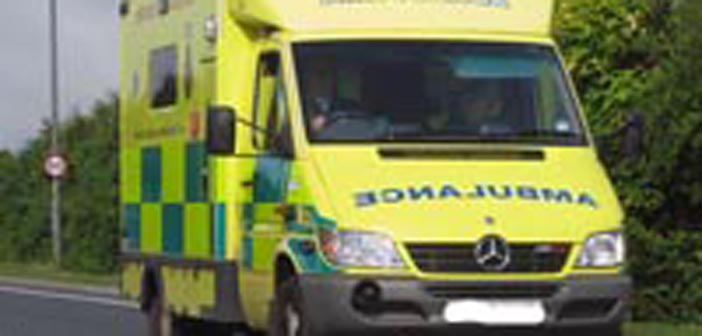HUNDREDS of new staff have joined the emergency care workforce in the North West ahead of winter – including as paramedics and call handlers – with warnings of significant pressure due to winter viruses over the next few months.
The numbers of both 999 and 111 call handlers nationally are up on last December (8 per cent and 5 per cent respectively), meaning hundreds more staff are in place to take urgent and emergency calls.
The North West Ambulance Service (NWAS) has recruited 250 call handlers to take 999 and 111 calls since April. . Figures for October for 999 calls are the highest month of the year so far (139,619), with an average call answer time of two seconds – faster than the average of 59 seconds last October.
Last year, the NHS nationally experienced incredibly high demand for NHS 111, partly driven by concerns from parents about symptoms of Strep A, with over 720,000 calls received in one week at the peak in December
December was also the busiest month last year with 334,479 calls, a 28 per cent increase on the previous year.
The latest North West weekly figures show that thanks to the growth in 111 call handlers and other measures outlined in the NHS urgent and emergency care recovery plan, in the week ending December 3, the NHS 111 service answered more than twice the proportion of calls within a minute as the same week last year.
The number of paramedics and emergency medical technicians in the North West is also up on last December (an 8 per cent increase equating to an additional 245 paramedics and emergency medical technicians). This means hundreds more staff are in place to respond to emergencies.
NHS England regional medical director for primary care, Dr Paula Cowan, said: “It is welcoming news that we’ve recruited hundreds more emergency staff ahead of what many expect to be one of the most challenging winters in NHS history. In the North West we have more ambulance staff and 111 and 999 call handlers to help deal with the record demand for services as it gets busier.
“The latest figures show we are seeing sustained pressure in emergency, primary and community care, with over 95,000 beds occupied last week across the country and hundreds of patients admitted with viruses. This is why it is so important there are more colleagues at hand to help treat as many patients as possible and as quickly as possible.
“The NHS Long Term Workforce Plan was published earlier this year and which aims to retain and train many more staff. Working in the NHS, particularly on the frontline, and saving lives in our urgent and emergency care teams, is incredibly rewarding so if you are interested in joining you can find out more on our NHS careers website.
“I want to personally thank all of our clinical and allied health care professional staff across the North West. We are deeply proud of the incredible efforts of NHS staff in the region. They are already working incredibly hard and continue to go the extra mile to prepare and ensure our patients receive the best possible care this winter.”
NHS staff are already experiencing significant pressure with figures for the week ending 3 December showing an extra 1,200 patients in hospital compared to the same week last year, increases in winter viruses – particularly norovirus – and challenges discharging patients to settings such as social care.
Robust NHS plans for winter, set out earlier than ever before, have seen the nationwide rollout of care ‘traffic control’ centres, extra ambulances and beds and the rapid expansion use of the world-leading and innovative virtual ward programme, keeping patients out of hospitals and treating more people at home and in the community where appropriate.




